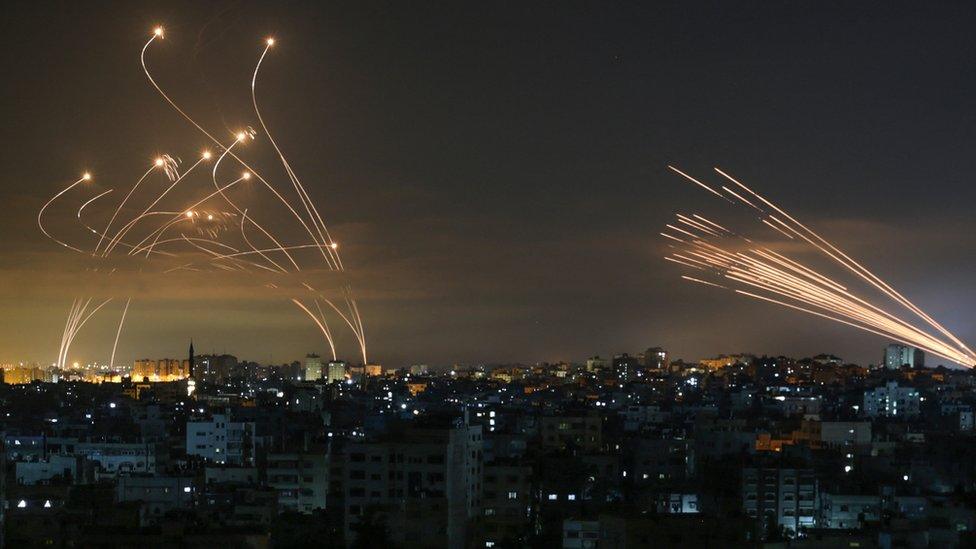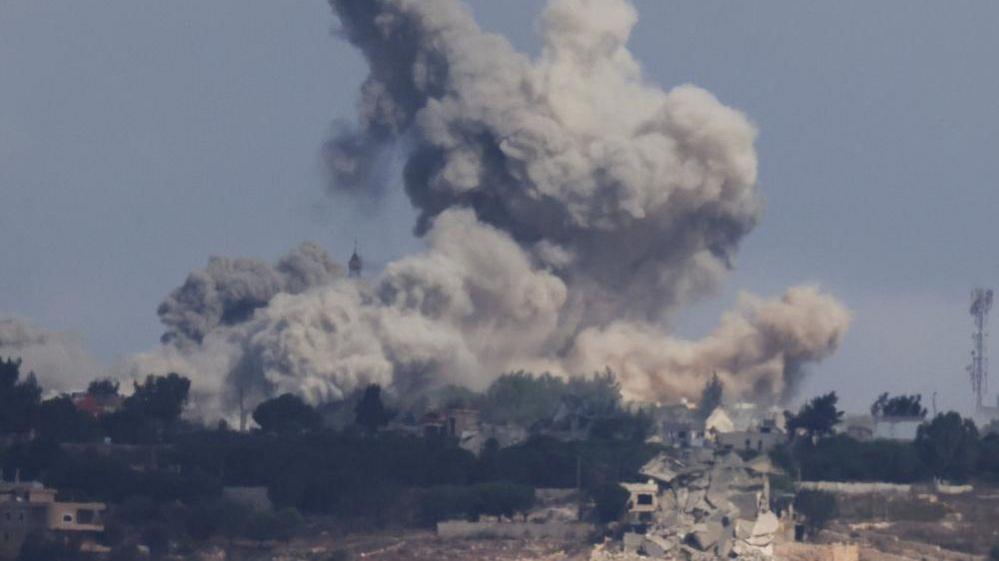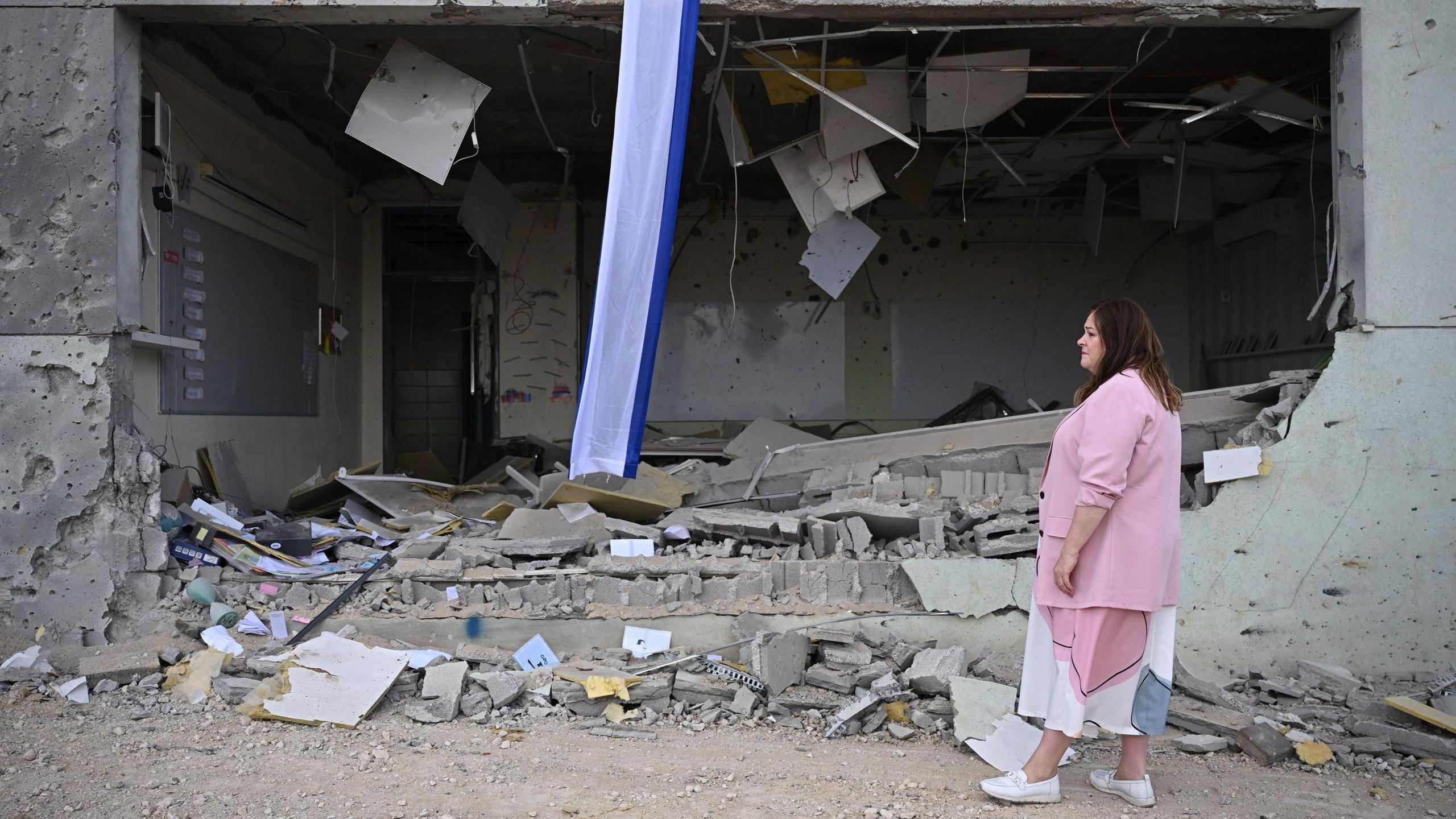Professor fears for family amid Lebanon crisis
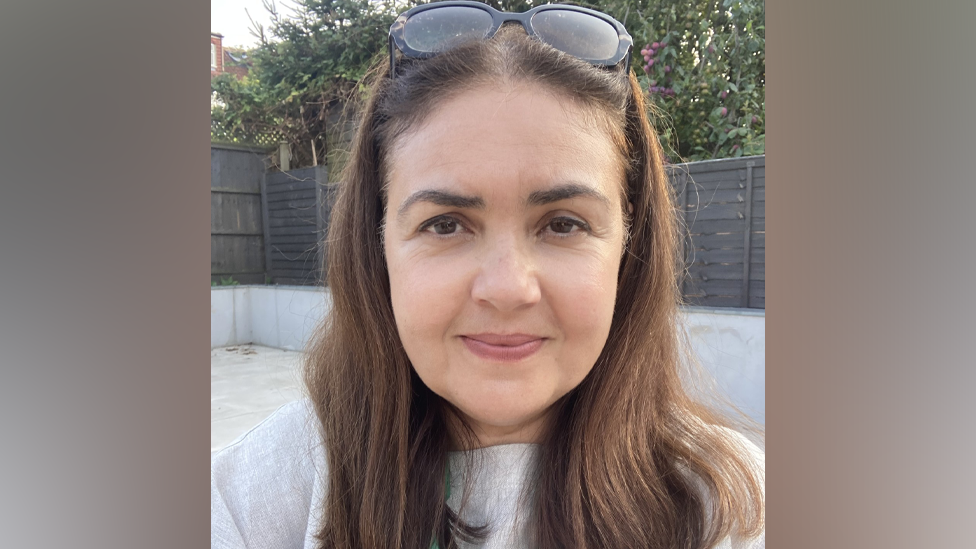
Prof Dina Kiwan said many people in Lebanon felt "utterly trapped"
- Published
A university professor with friends and family in Lebanon has spoken of the "terrifying and horrific" situation the country is facing.
Prof Dina Kiwan, of the University of Birmingham's comparative education department, said people were panicked following the escalation of the conflict in the Middle East.
It came after Israel launched a ground invasion into the south of Lebanon, which followed a series of attacks in the country, including on the capital Beirut.
The conflict has escalated further in recent days, after Iran fired almost 200 missiles at Israel, targeting Tel Aviv and Jerusalem.
Prof Kiwan, whose children are half-Lebanese and have paternal family in Lebanon, told BBC Radio WM that their family members in the south of the country were leaving because there was a sense that "nowhere is safe".
Asked what she had heard from them about the situation, she said: "It’s absolutely terrifying and horrific.
"People can't even really believe [it]. It feels surreal what's happening, although Lebanon has a long history of often being in these conflict situations."
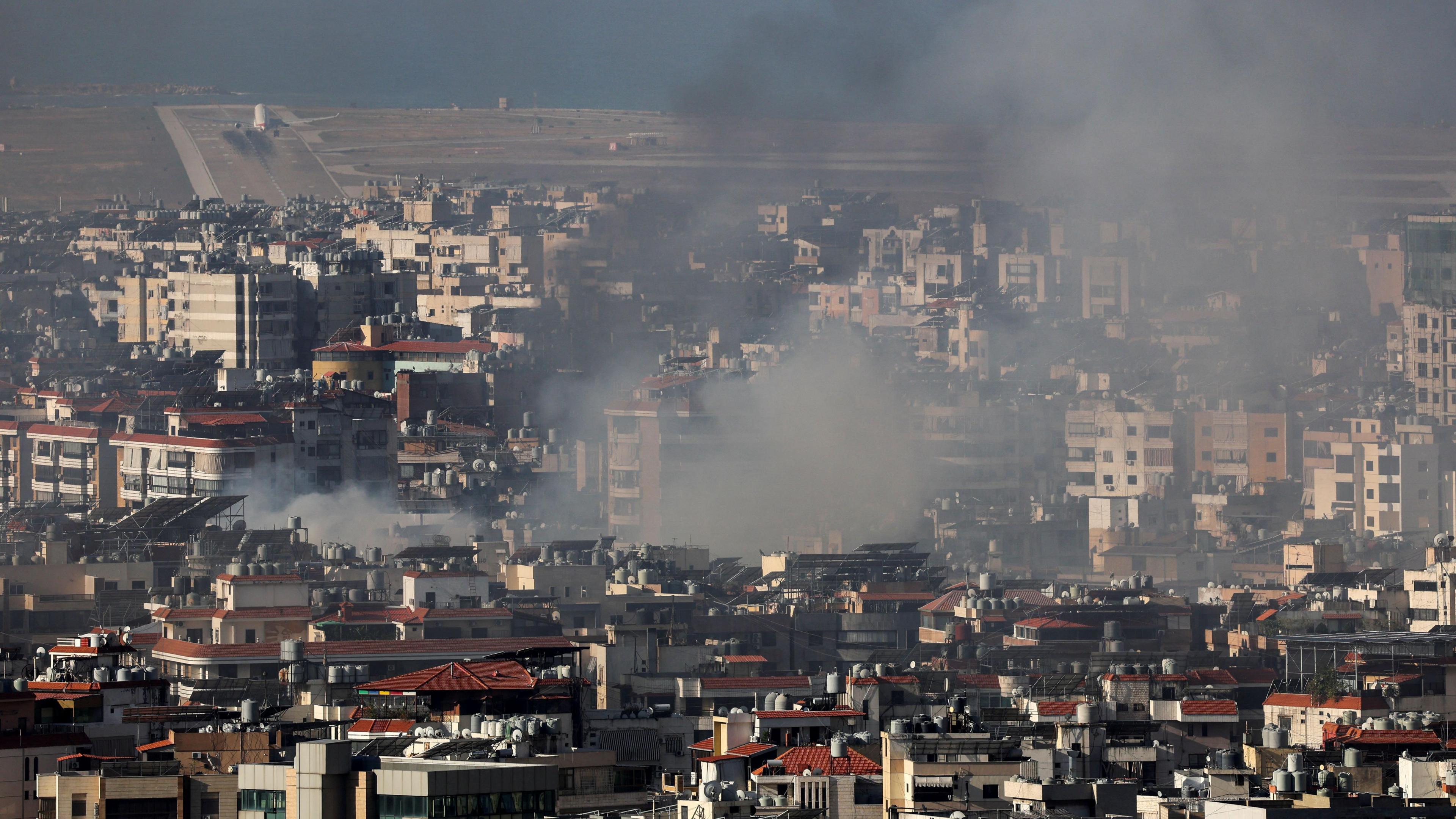
Lebanon's capital of Beirut was targeted in the Israeli attacks
Prof Kiwan said many people in Lebanon felt "utterly trapped" as well as "angry" at the international community because they "don’t seem to care".
She added: "They've seen what's happened in Gaza and they just think that they’re trapped and no-one is going to come and help them."
People were fleeing to the north of the country and many were desperately trying to get plane tickets to get out of Lebanon, Prof Kiwan said.
"There’s this tremendous desperation and despair with children so, so frightened," she added.
"It’s not just in the moment, it will affect people for months and years to come, this level of trauma."
The escalation came almost one year after the current conflict was sparked by the Hamas-led attack in the Gaza Strip on 7 October, which saw 1,200 people killed and 251 taken hostage.
In the year since the attack, retaliatory strikes from Israel have killed more than 41,500 people in Gaza, according to local health authorities.
Get in touch
Tell us which stories we should cover in Birmingham and the Black Country
Follow BBC Birmingham on BBC Sounds, Facebook, external, X, external and Instagram, external.
Related topics
- Published2 October 2024
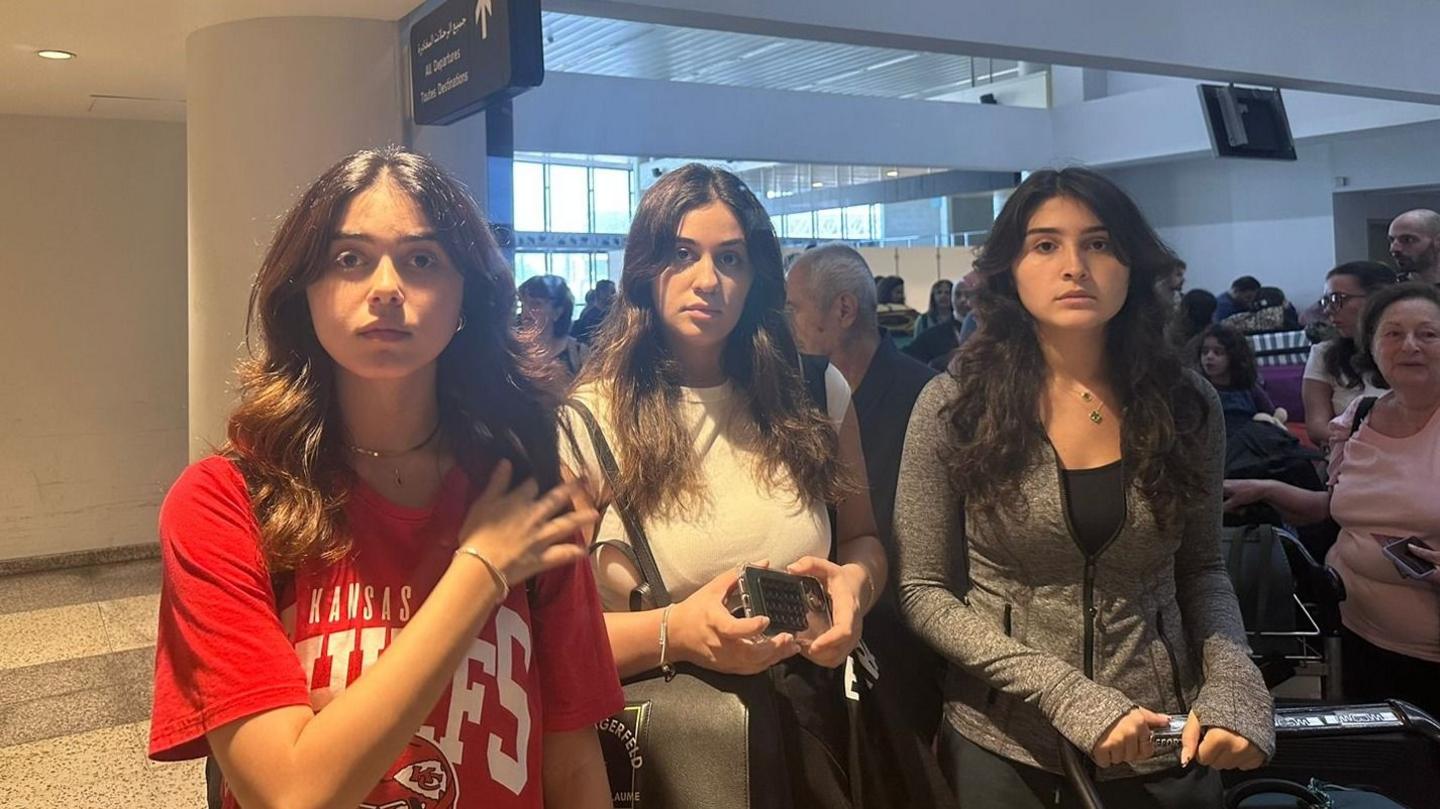
- Published16 October 2024
